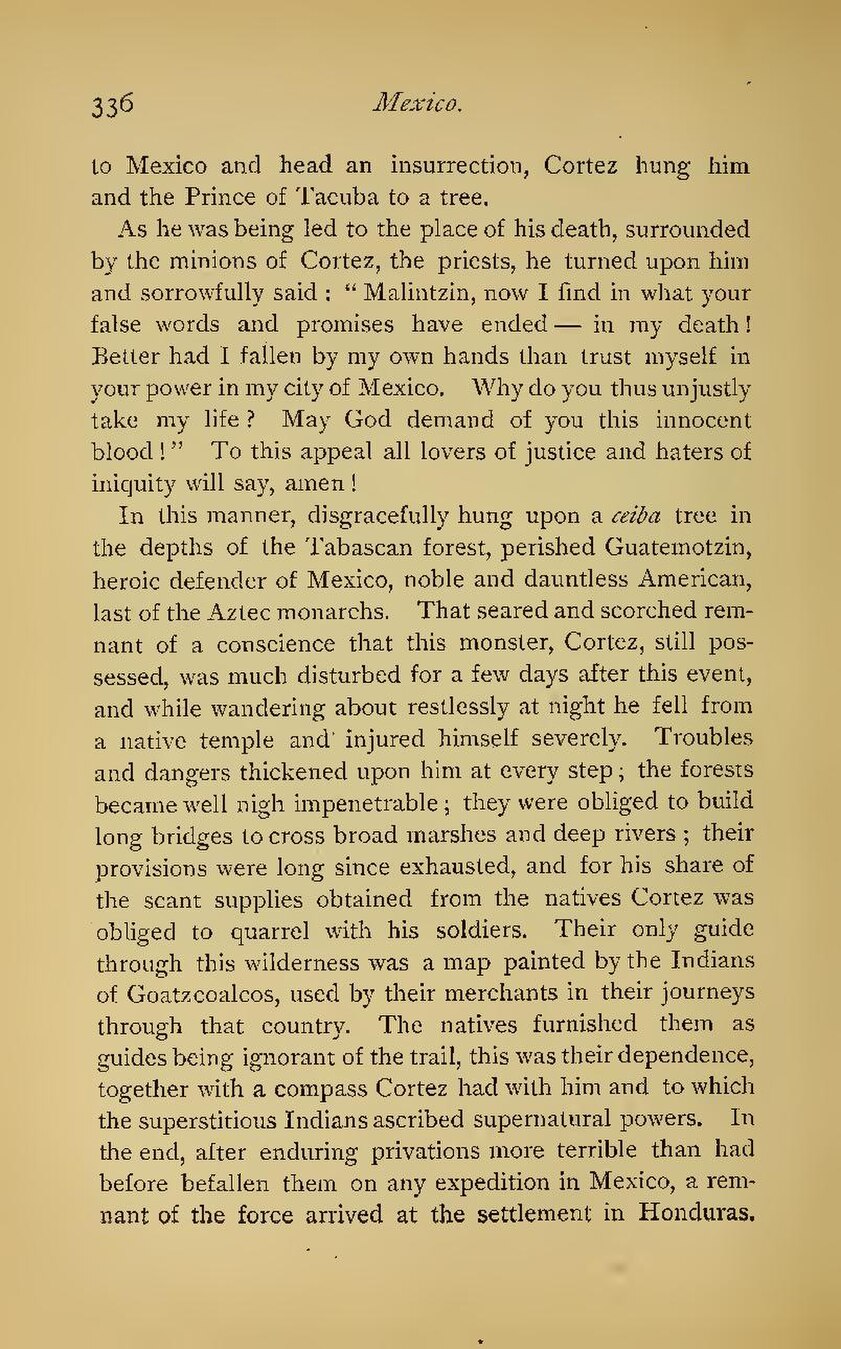to Mexico and head an insurrection, Cortez hung him and the Prince of Tacuba to a tree.
As he was being led to the place of his death, surrounded by the minions of Cortez, the priests, he turned upon him and sorrowfully said: "Malintzin, now I find in what your false words and promises have ended—in my death! Better had I fallen by my own hands than trust myself in your power in my city of Mexico. Why do you thus unjustly take my life? May God demand of you this innocent blood!" To this appeal all lovers of justice and haters of iniquity will say, amen!
In this manner, disgracefully hung upon a ceiba tree in the depths of the Tabascan forest, perished Guatemotzin, heroic defender of Mexico, noble and dauntless American, last of the Aztec monarchs. That seared and scorched remnant of a conscience that this monster, Cortez, still possessed, was much disturbed for a few days after this event, and while wandering about restlessly at night he fell from a native temple and injured himself severely. Troubles and dangers thickened upon him at every step; the forests became well nigh impenetrable; they were obliged to build long bridges to cross broad marshes and deep rivers; their provisions were long since exhausted, and for his share of the scant supplies obtained from the natives Cortez was obliged to quarrel with his soldiers. Their only guide through this wilderness was a map painted by the Indians of Coatzcoalcos, used by their merchants in their journeys through that country. The natives furnished them as guides being ignorant of the trail, this was their dependence, together with a compass Cortez had with him and to which the superstitious Indians ascribed supernatural powers. In the end, after enduring privations more terrible than had before befallen them on any expedition in Mexico, a remnant of the force arrived at the settlement in Honduras.
